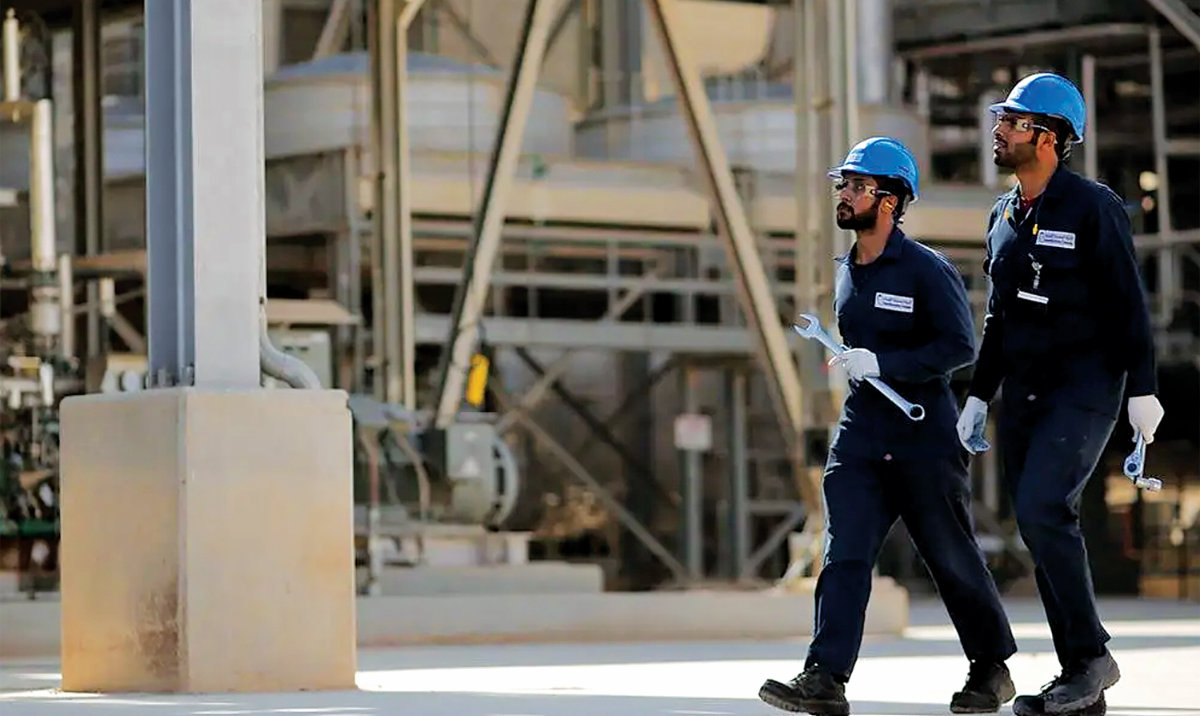RIYADH: Japan’s Mitsubishi Power is committed to supporting Saudi Arabia’s growing demand for energy to help it achieve the prosperity outlined in Vision 2030, according to a top official.
Adel Al-Juraid, CEO of Mitsubishi Power in Saudi Arabia, shared profound insights into the company’s transformative journey in an interview with Arab News, offering a comprehensive overview of their vision, initiatives, and contributions to the Kingdom’s energy sector.
Saudi Arabia is facing a growing electricity demand due to a growing population and increased economic activity.
Electricity consumption in the Kingdom has been growing since 2010 in terms of total consumption and consumption per capita, a 2022 study by Umm Al-Qura University showed.
Between 2010 and 2017, per capita electricity consumption in Saudi Arabia increased by 20 percent, compared to the US in which it decreased by over 5.9 percent.
“Based on the current energy policy and rapid growth in population and economy, the peak demand in Saudi Arabia is expected to keep increasing and reach approximately 84 GW by 2030 and 103 GW by 2040,” the study predicted.
This increase is very much in the mind of Al-Juraid, and the CEO said: “We are committed to supporting our partners in the Kingdom to meet the country’s growing demand for power.”
He added: “This includes delivering our state-of-the-art low carbon power technology solutions and services to the Kingdom.”
Reflecting on the firm’s history of collaboration with Saudi Arabia, the CEO remarked: “We are proud of our long-standing heritage in the Kingdom.”
Al-Juraid went on to elaborate on the company’s extensive involvement in major projects across the Kingdom, saying: “We have worked on major projects in the Kingdom, including Rabigh, Qurayyah, and the 2.650 gigawatt Jeddah South Thermal Power Plant which features Mitsubishi Power advanced gas turbines and steam turbines.”

The company has delivered Mitsubishi Power gas turbines of the M501F series to Saudi oil giant Aramco to support them in providing reliable and efficient power generation for their operations and to communities and industries across the Kingdom, the CEO revealed.
He added: “Our industry-leading turbines lead the world in reliability and utilize state-of-the-art technologies to optimize energy efficiency and reduce emissions, contributing to the Kingdom’s goal to provide uninterrupted power to communities around the nation.”
The company has established a service and repair center in Dammam for Hot Gas Path Parts components, as well as a rotor maintenance center, as part of its localization activities and to ensure closeness to customers.
“Our Saudi Arabia assembly facility is another testament to our ongoing expansion efforts in the Kingdom,” Al-Juraid continued.
Built on a facility measuring 17,200 sq. m., the Mitsubishi Power Saudi Arabia gas turbine blade and vane maintenance hub provide HGPP and rotor maintenance support for customers in the Gulf Cooperation Council region, as well as generating employment in Saudi Arabia, according to the CEO.
Al-Juraid set out his ambition to strengthen partnerships with private sector firms and government entities in Saudi Arabia, describing the approach as “multifaceted” and aligned with the Kingdom’s Vision 2030 objectives.
He explained that Mitsubishi Power works with “key energy stakeholders,” including the Ministry of Energy, Saudi Aramco, and SABIC, as well as Saudi Electricity Company , Saline Water Conversion Corporation, and all major projects led by PIF and independent power producers.
“In recent years, Saudi Arabia’s energy landscape has evolved rapidly,” Al-Juraid said.
The CEO added: “With our advanced, reliable and highly efficient power technology solutions and our growing localization initiatives, we aim to continue to partner with both the private and public sector organizations to support them in meeting their power needs and energy transition goals.”
Recognizing the crucial role of government entities in driving large-scale infrastructure projects, Al-Juraid said: “We are proud to engage with government entities in Saudi Arabia to align our initiatives with their strategic priorities. As a trusted long-term partner to the Kingdom, our commitment is demonstrated through ongoing support and services.”
He also highlighted the firm’s role in supporting Saudi Arabia’s Vision 2030, particularly in terms of local talent development and industrial capacity building.
“Mitsubishi Power launched a National Program in 2019 to prioritize the development of local talent and expand industrial facilities and capabilities in Dammam to serve Saudi Arabia and the wider region, in line with iktva ( Aramco’s In Kingdom Total Value Add program) and Saudi Vision 2030,” he explained.
Through iktva, Aramco is taking action to drive additional domestic value creation to support a rapidly changing economic environment and foster future prosperity.
Working with its suppliers, the oil giant captures value that produces long-term tangible benefits – quality jobs for a growing Saudi population, innovation, and diversification of industry, and increased global competitiveness.
Mitsubishi Power has deployed and continues to deploy training and development programs in Saudi Arabia and in Japan to equip Saudi youth with the latest knowledge and know-how when it comes to power generation.
“Today we have over 115 employees and achieved a 54 percent Saudization rate, but my goal is to keep increasing this percentage to provide more and more of our Saudi talent with the opportunity to grow their career with one of the best engineering and technology companies worldwide,” Al-Juraid added.
Furthermore, the CEO discussed Mitsubishi Power’s plans to leverage existing facilities in Dammam to support the growing demand for power generation solutions in Saudi Arabia.
“We aim to provide the best-in-class power solutions to address the Kingdom’s demand for energy, supporting Saudi’s circular carbon economy and cleaner power strategies,” he emphasized.
Al-Juraid addressed the firm’s commitment to contributing to the Kingdom’s economic diversification goals.
To bolster local workforce capabilities, the energy solutions company is providing training programs to equip local citizens with capabilities to develop skills to support the kingdom’s ambitious economic growth targets, according to the CEO.

























